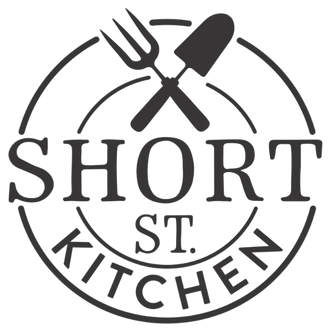It is time to seriously re-think the way we eat. Eating well is one of the most powerful ways you can improve your health and reduce your risk of disease, yet our modern western diet does just the opposite.
In a time of confusion about exactly what is good for us and multiple fad diets abounding it can be hard to know what to eat. Our approach is simple – eat mostly wholefoods, reducing as many packaged and ultra-processed foods as possible, and eat as many different plants as you can. We don’t think anyone can find any negatives with that approach. How you fill in the gaps is up to you.
Ultra-processed foods make up a significant part of the modern western diet. These foods not only lack nutrients and fibre but are brimming with additives like preservatives, artificial flavours, artificial sweeteners, and emulsifiers of which we do not know the long-term effects of. They impact our gut microbiome too - our gut microbes have not evolved to deal with the onslaught of unnatural chemicals present in ‘food’ today. Their presence in our diet also displaces healthier options from our plates. We are not just taking about obvious ultra-processed foods here like chips and confectionary, but also those additives that find their way into many common supermarket items that we use to prepare meals.
The aim of this workshop is to get you fired up and inspired about cleaning up your pantry and diet, and then how to make it work – realistic, practical tips for how to make these changes stick. We know the pitfalls and barriers to making sustainable changes and we have some strategies for you to set yourself up for success.
Included in the workshop
- What exactly are processed and ultra-processed foods and the impact are they having on our health and gut – the reasons to leave them on the supermarket shelf.
- A crash course and cheat sheet on reading labels so you know how to spot unhealthy ingredients in packaged foods. This means when necessary, you can compare and make more natural choices. We are not suggesting it is feasible to make everything from scratch so by reading labels, you can find those foods with clean ingredients.
- How to create a wholefood pantry and set up your cupboards, fridge and freezer for success – creating a healthy food environment is key to sustaining healthy choices. Willpower is not enough when we get tired, busy of stressed. We also go through where to source ingredients and how to store them.
- A bunch of demonstrations and starter recipes to replace some of those packaged foods we use all the time. We are always looking for ways to easily enhance the nutritional content of whatever we eat so we will provide plenty of ways to take your pantry staples to the next level and add superfoods and medicinal mushrooms.
- Take home notes, recipes, ingredient cheat sheets and further resources
- Coffee, tea and a nourishing brunch or afternoon tea.
Recipes or demonstrations include:
- Plant based milks
- Overnight oats
- Granola
- Seeded crackers
- Hummus
- Sweet wholefood treats
- Nut butters
- Ultimate smoothie recipes and the importance of including protein and good fats in the blender
- Nourishing stock.
Places are limited!

